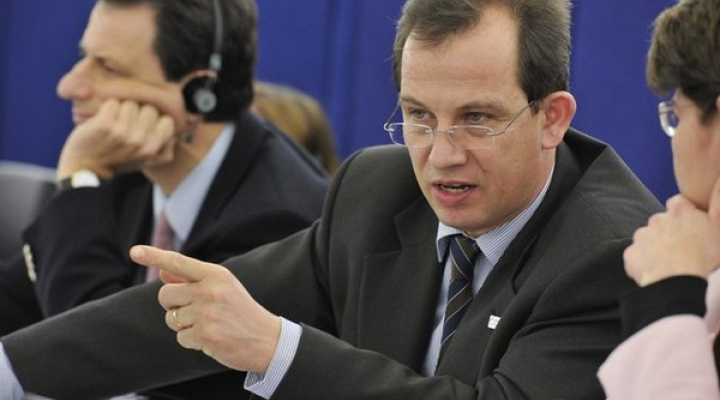New parliamentary session to begin in Strasburg
MEPs voted overwhelmingly for (431 for, 49 against, 48 abstain) the modification of the regulation regarding FRONTEX (European Agency for the Management of Operational Cooperation at the External Borders of the Member States of the European Union) on Tuesday, September 13th during the first plenary session of the European Parliament in the new working year.
EPP member Simon Busuttil, rapporteur on the subject, considers the six year activity of the Agency to be positive, but urged a more strict action in order to enhance efficiency. It is the sucess of the EP that the respect for basic right, the appointment of a Fundamental Rights Comissioner, and the establishment of a consultative council on fundamental rights were introduced into the Council’s text. FRONTEX’ set of tasks also broadened: member states can appeal to the Agency in case of humanitarian emergencies or sea rescues. Frontex will also develop codes of conduct to guarantee compliance with fundamental rights and the rule of law in all operations, including return operations.
DAHR’s MEP Csaba Sógor made remarks during the debate preceding the vote. Here follows the MEP’s speech:
„The report compiled by my colleague Simon Busuttil is in line with the Commission’s proposal to further develop Frontex’ activities. I salute the intent to strengthen the regulations regarding the protection of fundamental rights since no European regulation – not even the protection of external borders – can turn away from this issue. I also agree with my colleague that the Agency needs to pay special attention to member states that are faced with specific and disproportionate burdens, not only because the events of the last period have shown the difficulties such member states have been faced with, but also because European solidarity demands it. The plan to create an European space based on freedom, security and rule of law demands it. I would like emphasize that the elimination of internal borders and the strengthening of external ones is in the interest of every European citizen, therefore I hope that Romanian and Bulgarian citizens will enjoy the benefits of the Schengen area as soon as possible.”
Another of this plenary session’s important subjects is the EU’s strategy regarding the homeless. MEPs urged the coordination of national and regional policies in order to solve the problem that affects 44 million European citizens. Several MEPs called for a stronger EU presence and sustainable solutions to be devised by the EC and implemented by the member states. Others spoke for social innovation, fast and effective action and a clear political will because they felt that the year 2010 was of no avail in the struggle against poverty, as no solution to the issue was found.
MEP Csaba Sógor submitted a written speech to the debate. Here follows the MEP’s remark:
„Adhering to my colleagues’ questions, I would like to urge the Commission to put emphasis on prevention when elaborating the strategy. Being homeless is becoming a growing problem in all of Europe, besides the obvious economic reasons, this is the result of the atomization of society and the disintegration of traditional communities. Today, not only those on the fringes of society, drug- and alcohol addicts are facing this problem. In many member states, the phenomenon affect part of the middle class as well, many people with university degrees that have had or currently have a job. These are the people whom we could help through small, but well directed aid within the strategy. I am sad to see that the „private social net” that characterized small communities a few decades ago is either no longer existent or very weak. This is another reason for member states to pay special attention to those forced to live on the periphery.”











